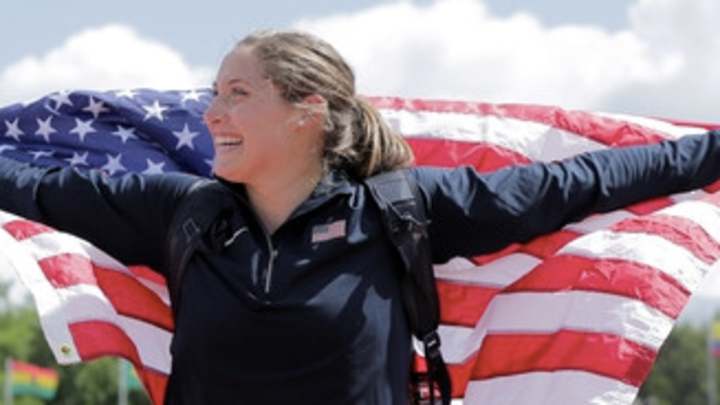2020 Tokyo Olympics Postponed Due To Coronavirus; What It Means For the Athletes

Another large domino in the sports world fell due to the coronavirus pandemic on Tuesday. The President of the International Olympic Committee (IOC), Thomas Bach, and the Prime Minister of Japan, Abe Shinzo, said that the 2020 Tokyo Olympic Games are going to be postponed for a year because of the coronavirus pandemic.
"[T]he IOC president and the Prime Minister of Japan have concluded that the Games must be rescheduled to 2021 "to safeguard the health of the athletes, everybody involved in the Olympic Games and the international community," a joint statement by the Tokyo 2020 organizing committee and the IOC said.
This is impactful news for athletes preparing for the 2020 Games, including many with Purdue University ties
In the 2016 Games in Rio De Janeiro, the Boilermakers fielded a school-record eight Olympians. The Purdue Olympians were highlighted by the first-ever female gold medalist in Amanda Elmore (women's rowing), the first-ever female three-time Olympic qualifier in Kara Patterson Winger (women's javelin) and the best-ever finish for the United States in 10-meter synchronized platform diving in David Boudia and Steele Johnson.
Also, Purdue had its first-ever Olympians in women's basketball and women's golf, featuring Aya Traore and Paula Reto, respectively.
With the 2020 Games being put on hold, this will affect qualifying for the eight former Purdue Olympians from the last summer games, as well as the new Boilermaker athletes pushing to reach their first games.
"Athletes spend a lot of time by ourselves recovering or traveling or what have you and we're used to dealing with injury or things that kind of just throw a wrench in your plans," said Purdue track and field alum Kara Patterson-Winger.
For others, like diver Steele Johnson, the wrench happens to be a little bit larger and affects more than just his athletic aspirations.
"I’m at a loss for words. Moving the Olympics to 2021 is the right decision," Johnson said in an Instagram post. "Focusing on the health and safety of humanity must always be the priority. That being said, I’ve spent the past four years working to peak this coming summer. I am committed to spending the next year continuing to grow as an athlete, but it will not be easy. Pushing the Games back will have a major impact on how I prepare and how I go about supporting my wife and I. It’s going to be a battle, but I’m going to fight like hell."
The 23-year-old decorated Olympian and former Purdue diver now will most likely have to search for work to help support his family. Creativity runs deep in his family and Johnson has a degree in film and video studies from Purdue, so he will have to rely on his other strengths at the moment with his sport being put on hold.
Even in these uncertain and difficult times, Johnson was still able to find a silver lining, which is a testament of his character. "While it will be a challenge to keep training towards a postponed Olympics, it gives me an opportunity to spend another year to perfect my dives on the 3-meter event," he told me. "Since my surgery, I’ve been on a fast-track back to training, and another year of training will allow more time for my foot to heal and me to build strength."
For others, like three-time Olympian Patterson-Winger, age and durability comes into play.
"I know that one of my most successful seasons to date, 2010, right around this time, I couldn't do anything for like a month and a half because I hurt a facet in my thoracic lumbar junction," said Patterson-Winger. "I couldn't do anything, I was totally stymied, hamstrung, stuck on the couch or in bed and then I had one of the best seasons of my entire life."
Patterson-Winger remains optimistic in nature too, which will be key to not let the postponement bog her down. The 33-year-old javelin thrower is attempting to qualify for her fourth Olympic Games and prolonging the games an estimated year certainly is not ideal for an athlete coming to the end of her career.
Never before had the Olympic Games been postponed or canceled for something other than war in 1916, 1940 and 1944.
